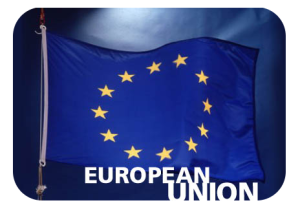
The European Union (EU) has pledged 820 million euros support for Nigeria’s digital economy.
According to its Executive Vice President, EU Commission, Margrethe Vestager, the pledge comes just days after the Commission’s Vice-President, Ursula von der Leyen, announced the Global Gateway to Africa-Europe Investment Package, which is valued at 150 billion euros.
A package of measures expected to continue until 2024 will help strengthen secure connectivity, digitalize public services, foster entrepreneurship, and improve digital skills, while creating human-centric, democratic governance mechanisms for technology.
Nigeria’s Vice President, Yemi Osinbajo, referred to the plan as impressive and stressed the importance of using the latest technology in the National Development Plan.
The Nigerian Vice President also underscored the need for a renewed Nigeria-EU partnership, including expectations of success from the EU-AU (European Union – African Union) summit to be held later this week in Brussels.
He also expressed relief about the EU’s support for the country on gas as a transition fuel while receiving a delegation of the EU Commission led by Vestager at the Presidential Villa.
Vice President Yemi Osinbajo had spoken and written about the issue in different international fora as Nigeria has been at the forefront of the international advocacy on the issue.
According to Osinbajo, it is a comfort that the European Union (EU) agrees with Nigeria’s view that gas should be considered a transition fuel as the global community moves toward net-zero emission targets.
An EU delegation met with members of the European Business Chamber Nigeria (EuroCham) in Lagos prior to the visit to Prof. Osinbajo to discuss opportunities and challenges of doing business in Nigeria.
EUROCHAM brings together the most important European investors and corporate entities in Nigeria. In October 2018, the EU ambassador launched the document at the EU-Nigeria Business Forum. “The meeting gave us the opportunity again to underline the fact that trade and investment are very much on top of our priorities and they are also key priorities in the partnership between the European Union and Nigeria,” said Samuela Isopi, the EU Ambassador in Nigeria. She assured that the EU would continue its dialogue with the Nigerian government about ways to strengthen the economic partnership between the two entities.
Nigeria’s largest trading partner is already the European Union as a bloc and the European Union is also a major investor in the country. We have European companies that have been here for a long time, that contribute to creating jobs and to the economic development of the country,” she said.
“When you look at the statistics produced by the National Bureau of Statistics in Nigeria you don’t see that because they are collected by country. So we have exports from Nigeria to Spain, Germany, Netherlands, France, when you add up all those countries referred to as the EU we are actually the largest trading partner,” explained Taylor.
A similar sentiment was expressed by John Taylor, director of ECOWAS’ Trade and Economics Section at the EU Delegation to Nigeria, who said that as Nigeria’s largest trading partner, the EU is committed to helping the country develop its economy.
“
